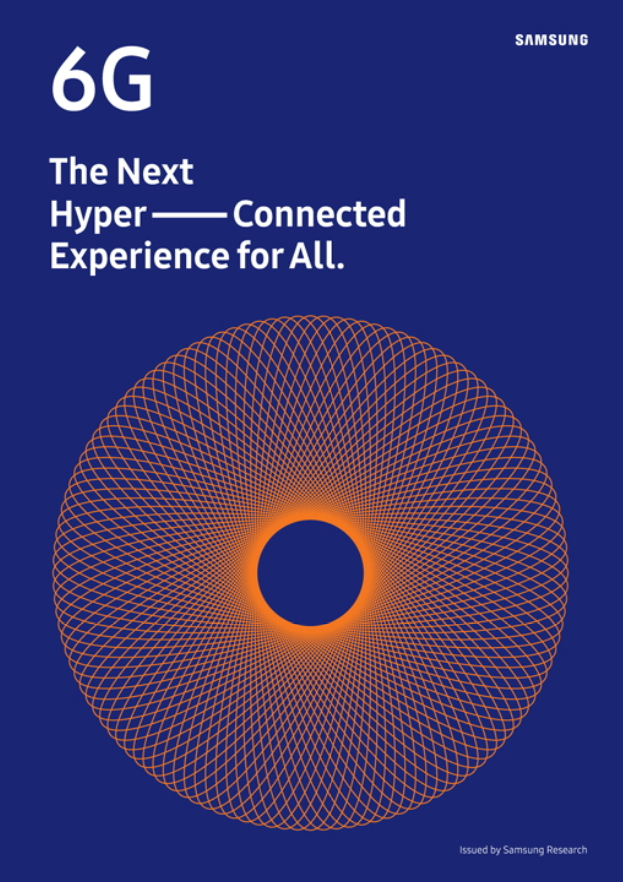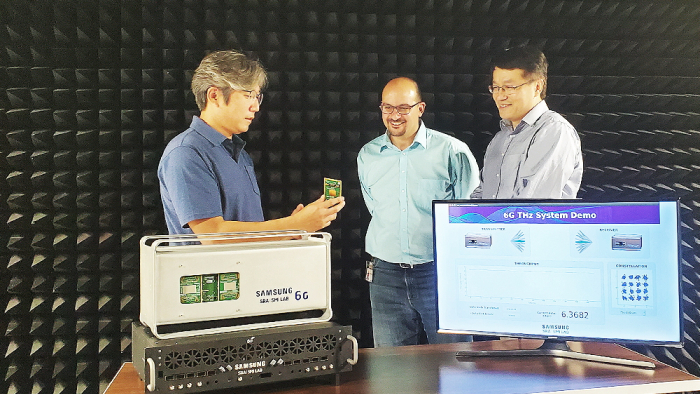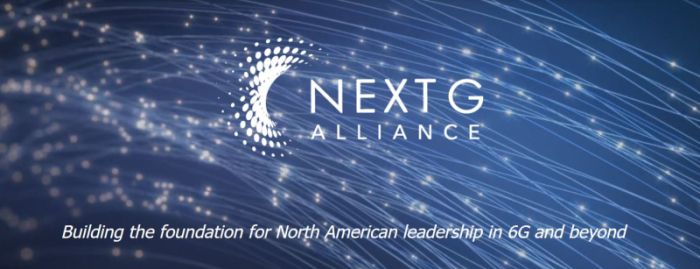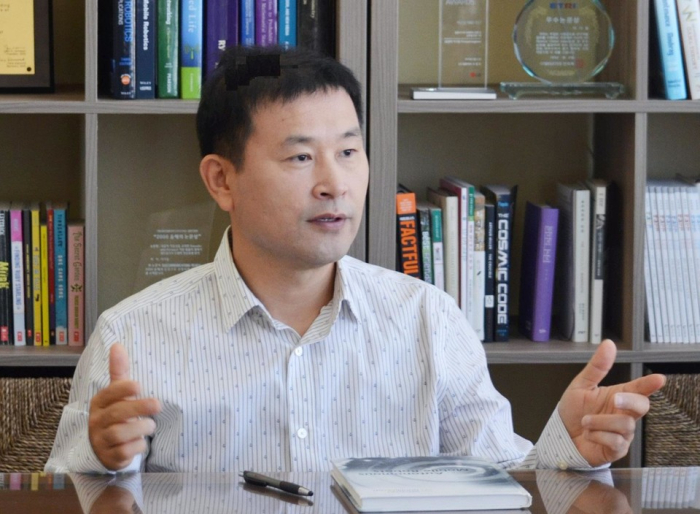Mobile networks
Samsung, LG take major steps forward in 6G commercialization
Korean firms say that now is the time to start developing 6G technologies, aiming for commercialization by 2030
By Jun 17, 2021 (Gmt+09:00)
4
Min read
Most Read
Samsung shifts to emergency mode with 6-day work week for executives


CJ CheilJedang to sell feed, livestock unit for $1.4 bn


Samsung Electronics' key M&A man returns; big deals in the offing


Affinity to buy SK Rent-a-Car at $572 mn, more deals expected


Keppel REIT to sell Seoul-based prime office T Tower



ŌĆ£ItŌĆÖs never too early to start preparing for 6G,ŌĆØ said Samsung Electronics Co. last July in releasing The Next Hyper-Connected Experience for All, its official white paper on 6G communication system. ┬Ā
The paper projected that the earliest commercialization date of the 6G standard could be in 2028, while mass commercialization will likely occur around 2030.
While 5G commercialization is still in its initial stages and 6G seems a decade away, South KoreaŌĆÖs leading network systems companies Samsung and LG Electronics Inc. are acting fast to get ahead of global competitors in the segment.
SAMSUNG MAKES ANOTHER STEP TOWARDS 6G COMMERCIALIZATION
Samsung said on June 16 that it succeeded in demonstrating the 6G Terahertz (THz) wireless communication prototype in collaboration with the University of California, Santa Barbara (UCSB).

The prototype system created by the researchers of the company and the university achieved a throughput of 6.2 gigabits per second (Gbps) over a 15-meter distance using an end-to-end 140 GHz wireless link.
1 Gbps means 1 billion bits of data can be transmitted per second and 6.2Gbps is fast enough to download a 4-gigabyte (GB) movie within four to five seconds.
Samsung commented that the demonstration marks a ŌĆ£major milestoneŌĆØ for the company as it successfully transmitted data in the THz frequency range.
The THz spectrum of bandwidth, considered necessary for 6G communications, refers to frequencies between 100 GHz (0.1 THz) and 10 THz. SamsungŌĆÖs 140 GHz wireless link┬Āused this time is equivalent to 0.14 THz.
Only a handful of major global companies, such as Huawei and Nokia, succeeded in demonstrating data transmission above the 100 GHz range. In comparison, the 5G network systems operate within the range of 3.5-28 GHz.
ŌĆ£This demo can be a major milestone in exploring the feasibility of using the THz spectrum for 6G wireless communications,ŌĆØ said Samsung ResearchŌĆÖs Head of the Advanced Communication Research Center Choi Sung-hyun. ┬Ā
The mass commercialization of 6G will accelerate the blurring of physical and digital worlds and create an integrated metaverse, just like in the Spielberg movie Ready Player One. The 6G technology is also necessary to enable the operation of millions of autonomous vehicles within a single metropolis.
ŌĆ£SamsungŌĆÖs recent demonstration with USCB is important in that it achieved to transmit multiple Gbps of data above the 100 GHz frequency range,ŌĆØ said Ko Young-jo, the director of 6G wireless transmission at South KoreaŌĆÖs state-run Electronics and Telecommunications Research Institute (ETRI).
But some other experts note that SamsungŌĆÖs recent test is only one of the first few steps towards 6G commercialization.
They say that the 15-meter distance in SamsungŌĆÖs demonstration is too short and that the data transmission rate of 6.2 Gbps falls even short of the theoretical maximum rate of 5G at 20 Gbps. The 6G network system, in theory, can be 50 times faster than 5G by transmitting up to 1,000 Gbps. ┬Ā
ŌĆ£Going forward, we are committed to leading the standardization of 6G in collaboration with various stakeholders across industry, academia and government fields,ŌĆØ said Samsung.
LG TO HEAD A KEY DIVISION WITHIN US-LED 6G ALLIANCE
SamsungŌĆÖs long-time rival LG Electronics is also strengthening 6G presence in its own way, despite its recent exit from the loss-making mobile phone business.
LG Electronics plans to continue building on its technological capabilities in the network systems sector as most of its future focus areas such as the internet of things (IoT) and autonomous vehicles require 6G networks.
According to the company on June 15, it will be heading a key division within the Next G Alliance, founded by the US Alliance for Telecommunications Industry Solutions (ATIS).
ATIS is an American industry association that aims to advance the business priorities of US-based information and communication technology (ICT) companies. Its members include Apple, AT&T, Google and Verizon.
ATIS established the Next G Alliance in October last year, as an initiative to advance North American mobile technology leadership over the next decade, according to the association.
The members of Next G Alliance include 48 major players of the global telecom network industry, such as AT&T, Nokia, LG Electronics, Samsung Electronics, Qualcomm and Verizon.

LG will be heading the Application Division, one of the six divisions of the Next G Alliance, after the election of its researcher Lee Ki-dong as the divisionŌĆÖs chairman.
The Application Division addresses the 6G-related application needs that will drive innovation and development for consumers, according to the alliance. The vice chairmen of the division include Andrew Herson at Verizon and Mitch Tseng of TaiwanŌĆÖs Industrial Technology Research Institute (ITRI).

LG Electronics says that it is the only Asian company to head a division at the Next G Alliance. LG added that the fact that it possesses the largest number of 4G technology patents in the world, as well as the third-largest number of 5G patents, seems to have been taken into account in the election.
ŌĆ£Our company will win the global leadership in 6G standardization and commercialization processes,ŌĆØ said LG Electronics Head of Future Technology Center Kim Byung-hoon.
Write to Min-jun Suh at morandol@hankyung.com
Daniel Cho edited this article.
More to Read
-
 5G smartphonesSamsung unveils low-end 5G phone to rival ChinaŌĆÖs cheap models
5G smartphonesSamsung unveils low-end 5G phone to rival ChinaŌĆÖs cheap modelsJun 04, 2021 (Gmt+09:00)
2 Min read -
 5G equipmentSamsung unveils mid-band 5G equipment to target $9.9 bn US market
5G equipmentSamsung unveils mid-band 5G equipment to target $9.9 bn US marketApr 20, 2021 (Gmt+09:00)
1 Min read -
 Samsung 5GSamsung replaces Huawei in Canada as SaskTelŌĆÖs 5G supplier
Samsung 5GSamsung replaces Huawei in Canada as SaskTelŌĆÖs 5G supplierMar 17, 2021 (Gmt+09:00)
3 Min read -
 Future mobilityLG, Qualcomm to cooperate in 5G platforms for connected cars
Future mobilityLG, Qualcomm to cooperate in 5G platforms for connected carsJan 27, 2021 (Gmt+09:00)
2 Min read
Comment 0
LOG IN


